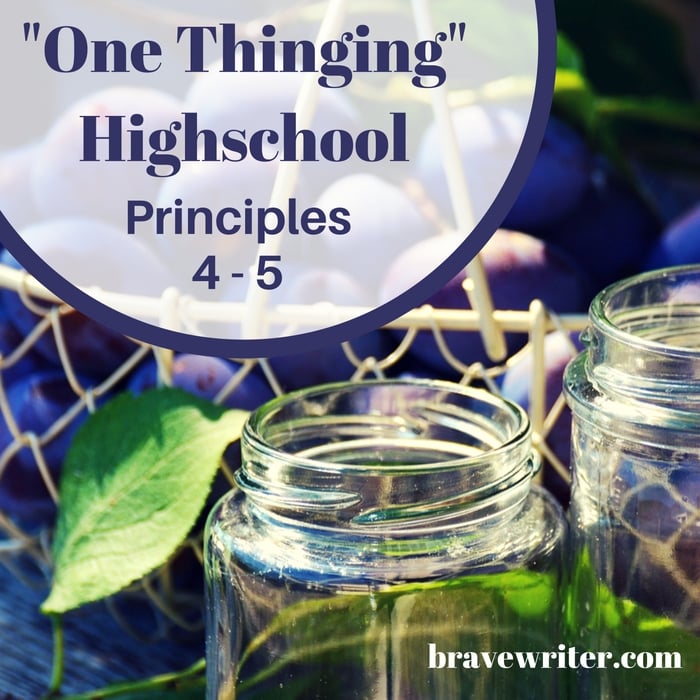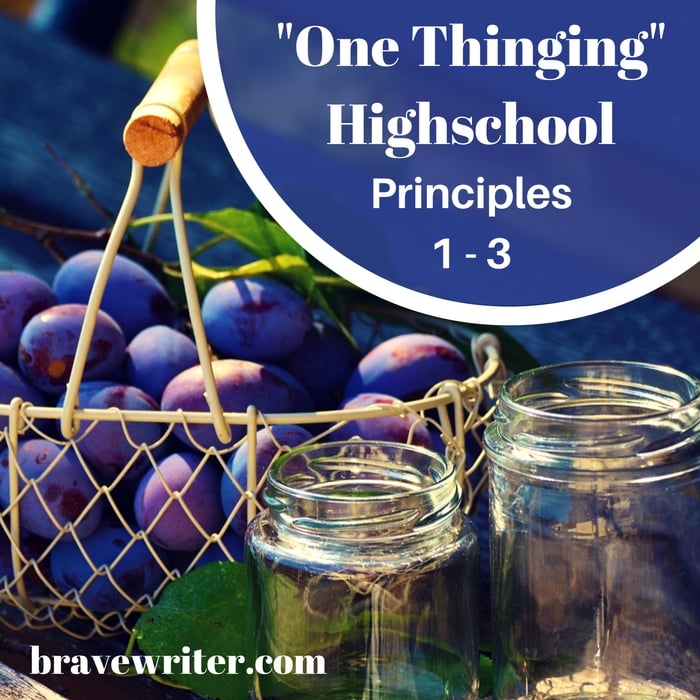Julie-
When my 16 year old daughter showed me this earlier today I HAD to send it to you so you could be encouraged – BRAVE WRITER works!! (But you already knew that.) All those lessons that were erratically joined together after I would sit and read the directions a few minutes before administering- All the “Quick we are going to do a 10 minute FREEWRITE†so I could try to get organized as to what we were doing that day- They are PROOF that Brave Writer really does work. All we have to do is “JUST BEGIN…†anywhere.
After I read this article my daughter showed me I got excited and very, very encouraged. Funny, I had been nagging her to start a BLOG thinking this would get her writing… Meanwhile, she is using her MY SPACE to do just that. Sometimes (most of the time) we just need to get out of the way of LIFE and let our kids LIVE IT and share it.
Thanks for helping me see that what my kids have to say is important and for encouraging me to tell them that what they say is important.
Annette Tyrrell
Elyria, Ohio
Monday, March 03, 2008
The Worst Event In Human History
You probably don’t notice it, don’t load it, and don’t care. Yes, I am talking about the dishwasher. Well ours broke, and in a family of 6 who never use the same cup twice, this is no light thing. We kids called it “The First Day of the Dark Ages.”
At first we just stood there, staring at the white lid smudged with finger prints and peanut butter. When we opened it, there was a puddle of water in the bottom that just seemed to say, “Good Luck Now!!” I recall tearing up, not of sadness, but of fear. A million things went through my head. I hated LOADING the dishwasher, and now I would have to wash all the dishes by hand? Now I’m not just talking about pots and pans—I’m talking about plates, cups, bowls and yes, silverware. I could just see it, one by one by one: washing and rinsing and drying. It was horrible, but we had to do it.
“What were you thinking,” you might ask, “when at the end of the day, you faced that mountain of dirty dishes two feet high and stretching the span of the counter?” Then you looked at the helpless dish rag, lying limp on the counter and you knew it just wasn’t capable of doing this job. Well… we went out and bought some ammo: heavy duty soap, scrubby pads and even a steal threaded rag. We knew it would be tough, but we were a tough family.
Our first mission was to decide who would wash when. Of course nobody spoke up, too frightened to say a word. All we knew was that we had to begin, just begin, and hopefully it would all work out. I remember that first time, soap up to my elbows, hands wrinkled and pruned and the front of my shirt soaking wet. But, as the days passed, it got easier. I began to develop strategies and methods for washing and rinsing. I even had a preference of dish soap. I also began to love this time of solitude—not having to worry about anything (except how to get off the burned lasagna). I could just exist, just me and the dishes. But this was not always the case.
Now, when it’s just one person, it’s easy because they can do it how they want to and nobody else cares. But when you have two or more people, that’s different. I am a very controlling person and when someone tells me that I should do the mugs, then the utensils, I get grouchy. One opinion that I am unflinchingly rigid on is “the soak.” That phrase is non-existent in my vocabulary. I do not “soak.” I believe there is nothing that I can’t get off NOW. In fact, I enjoy incredibly stuck-on food. I consider it a challenge for which I am always well-prepared. It just takes the right combination of rag/scrubber, cleaning solution, and raw muscle power. It’s simple: I’m a beast at the sink. So…I guess…it’s not SO bad; maybe not the worst event in human history.























